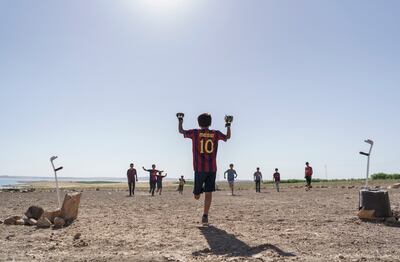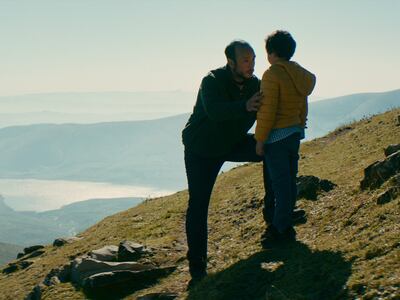Arab Cinema Week Volume 3 is back at Cinema Akil with a compelling line-up of films addressing pressing issues in the region.
This year’s event, running until December 1, spans 11 countries, with Yemen participating for the first time. The programme includes six fiction and five non-fiction feature films, as well as two short film collections featuring 10 shorts. In addition to screenings, audiences can also take part in Q&A sessions with select filmmakers.
“With Arab Cinema Week Volume 3, we continue our journey to celebrate Arab voices, identities and experiences on screen,” said Butheina Kazim, founder of Cinema Akil. "Building on the momentum of past years, we’re especially proud of the incredible female talent represented in nearly half of this year’s line-up – a testament to the strength and resilience of Arab women’s perspectives both in front of and behind the camera."
With an impressive schedule of films, here are six you shouldn’t miss.
Mother of All Lies (2023)

Moroccan director Asmae El Moudir's documentary explores her family's history and the collective memory of Casablanca’s Sebata district. Using miniature clay figurines to recreate her childhood street, she invites friends, neighbours and her grandmother Zahra – who had forbidden photography – to reflect on their past. Through this investigation, she connects her family’s story to the 1981 Casablanca bread riots, exposing the fragility of memory and its impact on identity.
Baghdad Messi (2023)

The film by Sahim Omar Kalifa follows Hamoudi, an 11-year-old Iraqi boy who loves football and dreams of reaching the same level as his favourite player Lionel Messi. However, one day he becomes the victim of an attempted suicide attack, in which he loses a leg. While his parents want to protect the family, Hamoudi – despite what happened – remains determined to make his dream come true.
Lion of the Desert (1981)
Moustapha Akkad’s historical war film depicts Libya's resistance against Italian colonisation, led by Omar Al Mukhtar, a teacher turned guerrilla leader. Facing brutal tactics from the fascist regime, Mukhtar fights with wisdom and perseverance, refusing to compromise even when he is captured. His execution marks a turning point, but the resistance continues, embodying Libya's enduring fight for freedom.
Behind the Mountains (2023)

The film tells the story of Rafik, who has recently been released from a Tunisian prison after serving four years for vandalising his former workplace. He is consumed by desperation and the belief that he can fly. Determined to prove his vision to his young son Yassine despite his family’s doubts, he takes the boy out of school and retreats to the mountains, occupying a family’s country house in the process. As Rafik’s mental state becomes increasingly apparent, the question of whether he can truly fly remains an open question.
Anxious in Beirut (2023)
Director Zakaria Jaber documents his life and the tumultuous events in Lebanon over recent years, including revolution, economic collapse and political unrest. Through this personal diary, he captures the anxiety of living in a city marked by explosions and demonstrations. As he and his friends grapple with the idea of leaving their homeland, the film reflects their shared struggles and the deep ties that have complicated their decisions.
The Brink of Dreams (2024)

The documentary by Nada Riyadh and Ayman El Amir, shot over four years, follows a group of girls from a remote village in southern Egypt who rebelled by forming an all-female street theatre group. They dream of becoming actresses, dancers and singers, challenging their families and villages with their unexpected performances.

